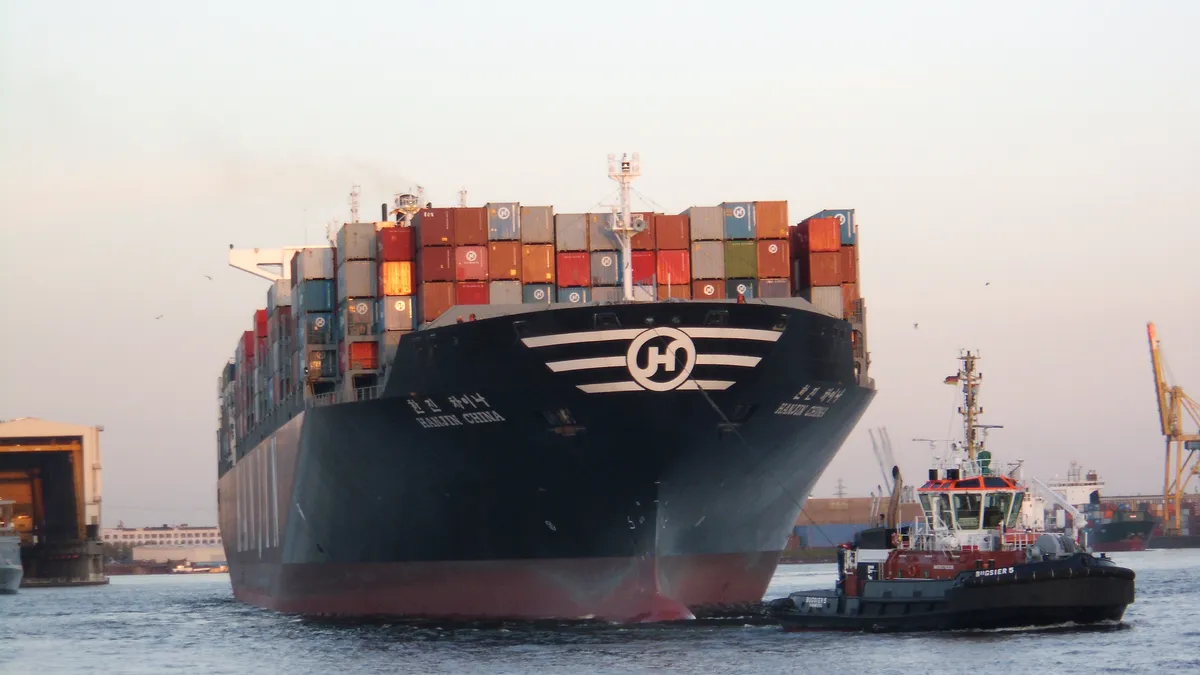Dive Brief:
- In comments to the World Trade Organization (WTO), The Institute of Scrap Recycling Industries (ISRI) called for clarification of China's definition of "carried waste," for the Chinese government to adjust contamination thresholds, and for China to delay the implementation of its new standards "to ensure full compliance."
- The Solid Waste Association of North America (SWANA) proposed a scenario in its submitted comments where China adopts two contamination standards. There would be a period of an initial carried-waste standard with a more stringent standard to come, the latter no sooner than 2022. The WTO's proposed standards are "neither practical nor economically feasible," according to SWANA CEO David Biderman. Additionally, SWANA's comments to the WTO calls on the government to release its basis for the 0.5% contamination standard.
- The National Waste & Recycling Association (NWRA) President Darrell K. Smith put it bluntly in his organization's comment — China's actions could "have a devastating effect on recycling, which the industry may not be able to recove[r] from."
Dive Insight:
SWANA and ISRI are both urging the Chinese government to consider the ISRI Scrap Specifications Circular to define its carried waste standards. Using the ISRI standards would raise the current proposed contamination standards to 3% or 5%, depending on the type of paper. Both of these would be significantly more lenient than the proposed 0.5% contamination standard coming from China. ISRI is also calling on China to more clearly define what "carried waste" is, so that valuable scrap can still be imported.
Biderman shared comments from SWANA members, who said it may be entirely feasible to reach a 2% contamination standard with enough notice — which explains the call for a five-year transition period. Currently, China's latest notification says enforcement of the new standards would come in March 2018. In its filing, ISRI notes that deadline only gives exporters about a month to adapt practices for shipments that have to leave port by the end of January.
The comments from NWRA focus on what the impact of these tight restrictions would mean for China. The country has spent the last decade importing a growing amount of scrap plastic to provide feedstock for its manufacturing industry. All three organizations noted and lauded China's commitment to developing polices to protecting its environment.
ISRI officials noted that the recycling industry has already seen some success in negotiating with China through the WTO, most notably in the Chinese government's Nov. 15 filing that slightly raised contamination standards. However, many in the industry see the 0.5% standards as still too strict and nearly impossible to meet.
Amid all this, some of the largest companies in the industry are, so far, operating largely the same after finding some new markets for their scrap exports — though they did suffer from a hit to stock prices earlier in the year. Additionally, the back-and-forth over import policies has had an unmistakable impact on local recycling programs.
It is too soon to know, definitively, how Chinese officials will react to these latest comments, but organizations will be watching closely as Dec. 31 (the proposed date of adoption) and March 1 (the date of "entry into force") approach.














